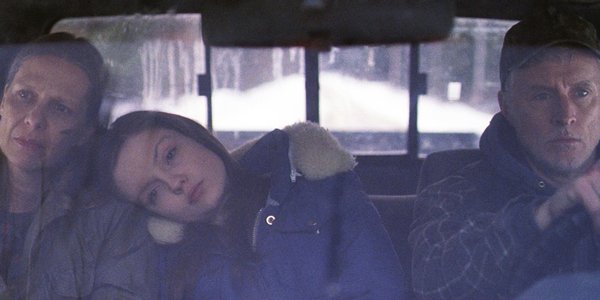Tribeca Film Festival: Bluebird Proves Good Acting And Good Intentions Can't Make A Good Movie

Actors who usually work in big Hollywood productions get drawn into indies for fairly predictable reasons: offered a chance to show their range and break out of more familiar charters, they flock to a tiny production with maybe not quite enough attention to the quality of the script. Every year the Tribeca Film Festival features at least a few of these, star-studded but modest productions that attempt to get more mileage out of the famous names than any story they actually have to tell.
This year has had its share, including the goofy and under baked Almost Christmas starring Paul Rudd and Paul Giamatti, but none are likely to be the slog that is Bluebird. A heartfelt and impeccably acted directorial debut from Lance Edmands, Bluebird is nonetheless an off-key meander through an imagined rural blue collar America, following a school bus driver (Amy Morton) and a paper mill worker (John Slattery, convincingly rugged) as their marriage and their lives face unimaginable strain.
To say that Morton and Slattery are great actors is redundant at this point-- Morton has proven her chops on stage for decades, while Slattery holds court weekly as Mad Men's Roger Sterling-- but they are again standouts here, with Morton burrowing deeply into the closed-off Lesley and Slattery fleshing out a role that's fairly thin. The bluebird of the title-- of course it's symbolic-- appears incongruously in Lesley's bus on a dark January afternoon, distracting her from finishing a routine check of every seat. Across town, waitress Marla (Louisa Krause) checks out of work and heads straight to the bar. We have no idea what these stories have to do with each other until disaster strikes, and Bluebird shifts from a portrait of a rundown small town to a wander through pretty much every one of Elisabeth Kubler-Ross's stages of grief.
Beginning and ending with long shots inside the paper mill, and peppered with many close-ups of minor objects and landscapes, Bluebird is constantly pushing symbolism on its slight story, the kind of thing that works much better in fiction than on film. Bluebird never manages to square its wintry atmosphere with the explosive emotions its builds toward, and especially with the withdrawn Lesley at its center, it never opens itself up enough to let the audience feel the pain its characters do. Slattery and Morton-- plus Justified's Margo Martindale and Girls's Adam Driver-- may draw viewers in, but Bluebird's admirable intentions aren't enough to keep them there.
For our complete Tribeca Film Festival coverage, click here.
CINEMABLEND NEWSLETTER
Your Daily Blend of Entertainment News
Staff Writer at CinemaBlend
Most Popular







